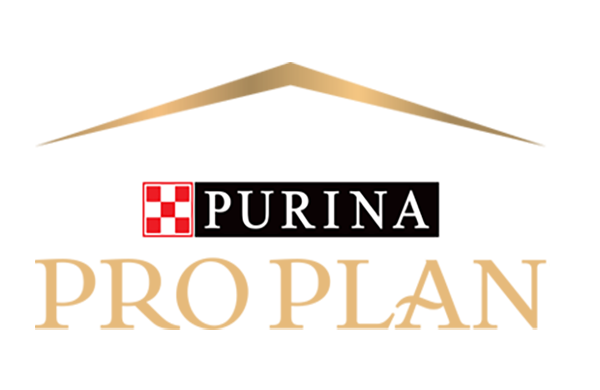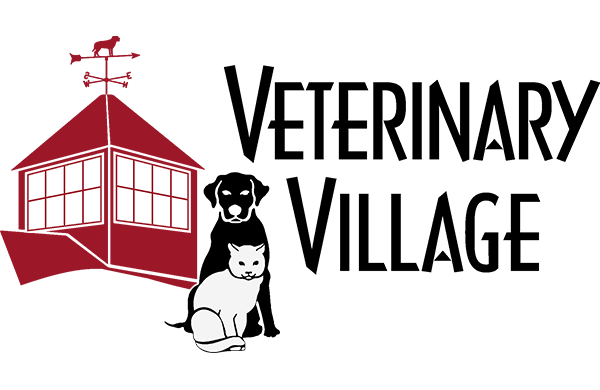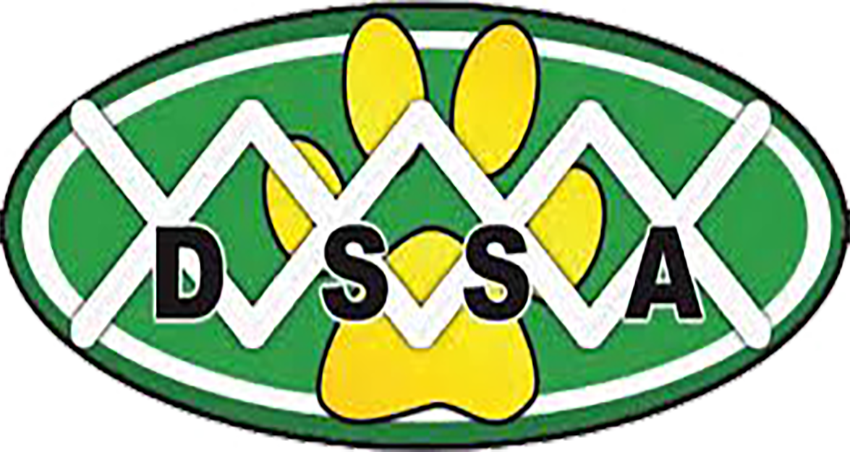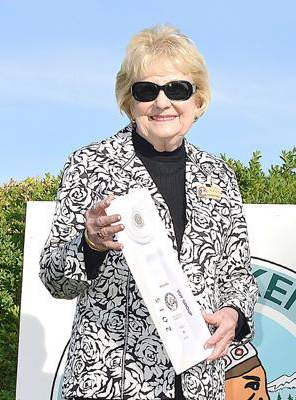452 – Drentsche Patrijshond: Hunting Dog, Property Dog, Family Dog
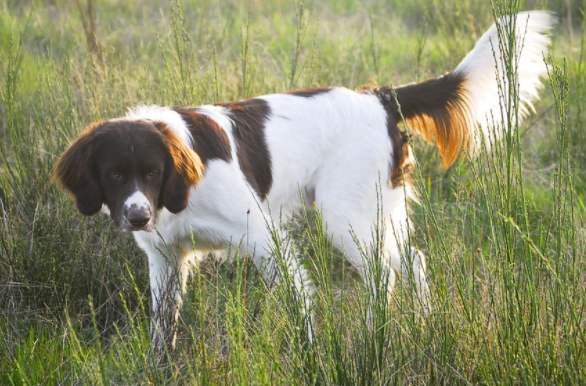
Drentsche Patrijshond: Hunting Dog, Property Dog, Family Dog
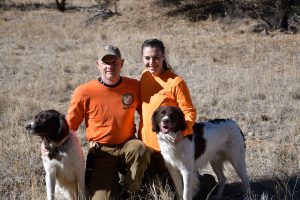 Rare breeds spotlight continues with the “Drent,” short for Drentsche Patrijshond, the all-purpose hunting dog of The Netherlands. Brian and Jenna O’Connor join host Laura Reeves to share their passion for this ancient breed.
Rare breeds spotlight continues with the “Drent,” short for Drentsche Patrijshond, the all-purpose hunting dog of The Netherlands. Brian and Jenna O’Connor join host Laura Reeves to share their passion for this ancient breed.
“(The breed is) about 350, almost 400 years old,” Brian said. “They were brought up through the Spanish occupation that went all up through France, Belgium, the Netherlands, in that little bit of western Germany. They brought over camp followers and their dogs, and they deposited all these dogs along the way. The Drent is one of these dogs that was kind of brought up through this phenomenon.
“Part of what makes the history of the Drent really unique is the province of Drenthe. It is a province with rolling hills. That’s where Vincent van Gogh came from … all those dark brooding skies is very typical of that landscape out there. …
 “The common man had the right to hunt there… This is 300 years ago. That wasn’t normal. So, if you were a priest or farmer, any professional class, you had the right to hunt. That was even unique within the country of the Netherlands, where hunting was reserved for nobility.
“The common man had the right to hunt there… This is 300 years ago. That wasn’t normal. So, if you were a priest or farmer, any professional class, you had the right to hunt. That was even unique within the country of the Netherlands, where hunting was reserved for nobility.
SUV of hunting dogs
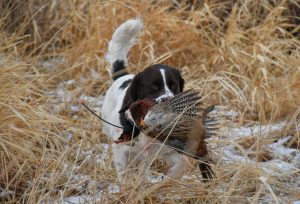 “So, you were this relatively poor person, odds are you were a farmer, and you could afford one dog … that one dog had to be able to do everything. So, if you were hunting Fox …if you’re hunting Swan or pheasant or Hungarian Partridge, if you’re hunting ducks whatever… oh, and by the way, when you needed to cart your milk or cheese or your vegetables to market on Wednesday, you would rig up your dog and the Drent would haul your goods to market for you.
“So, you were this relatively poor person, odds are you were a farmer, and you could afford one dog … that one dog had to be able to do everything. So, if you were hunting Fox …if you’re hunting Swan or pheasant or Hungarian Partridge, if you’re hunting ducks whatever… oh, and by the way, when you needed to cart your milk or cheese or your vegetables to market on Wednesday, you would rig up your dog and the Drent would haul your goods to market for you.
“They’re really close to their people, even if they don’t need to be sleeping on you. They’re going to be near you. There are the kind of dog that will not thrive in a kennel environment because they build that bond with their people and they’re not going to do well without their people. We don’t have a lot of reports of separation anxiety in the breed, but I would advocate for people to kennel train them. Otherwise, they’re going to find something to get into. They fall in the category of that smart continental versatile hunting dog that never should be left on its own.”
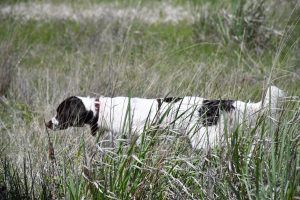 “(The Drent) really doesn’t have a lot of grooming,” Jenna said. “You wouldn’t treat a dog for a show much different than you would treat a dog going on a hunt or around the house. (A) good brushing once a week, maybe more when they shed once a year. Some Drents can get a little bit longer ear hair. You can either pluck it with your fingers or you can use a stripping knife and just pull that dead hair out. Other than that, they have feathering but you really don’t trim that. If you want to trim their hair on the feet that’s great but really they’re pretty au natural.”
“(The Drent) really doesn’t have a lot of grooming,” Jenna said. “You wouldn’t treat a dog for a show much different than you would treat a dog going on a hunt or around the house. (A) good brushing once a week, maybe more when they shed once a year. Some Drents can get a little bit longer ear hair. You can either pluck it with your fingers or you can use a stripping knife and just pull that dead hair out. Other than that, they have feathering but you really don’t trim that. If you want to trim their hair on the feet that’s great but really they’re pretty au natural.”
“The numbers we just got last week was 3,600 (Drents worldwide). In the States, we have less than 150. Of that 150, less than 10% of those are approved for breeding. We only maybe have two … active breeders. So we are definitely in the realm of needing some breed fanciers to step in and really invest some time into these guys ’cause they’re amazing dogs,” Brian noted.
For more info:
Brian’s book: https://www.blurb.com/b/5491948-the-drentsche-patrijshond-for-the-north-american-f
Drentsche Patrijshond Club of North America: www.ADPA.org
Our Valued Corporate Sponsors:
Our Esteemed Advertisers:
Our In-Kind Supporters:
KNOWLEDGE IS POWER — FRANCIS BACON
When you become a patron of Pure Dog Talk you’ll tap into an exclusive community of experts to help you and your dog be blue-ribbon best at whatever you do with your purebred dog! Your support helps keep the MP3's rolling at Pure Dog Talk!
As a supporter, you’ll immediately gain access to the weekly Pure Pep Talk SMS, Pure Pep Talk private Facebook group, and priority emails. Patrons can choose to level up to the After Dark Zoom and a Patrons Digital Badge for their website— even a private counseling session with Laura on any topic.

DON'T MISS AN EPISODE!!


